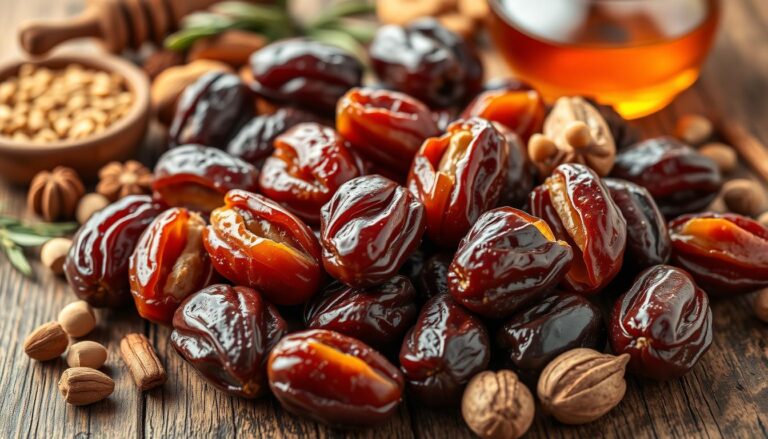Kidneys play a crucial role in filtering waste balancing fluids and regulating blood pressure. Yet many overlook how everyday actions can silently put these vital organs at risk.
Over 10% of adults in the U.S. suffer from chronic kidney disease, often due to preventable factors. What seems harmless like skipping water or overusing painkillers can lead to long-term health issues.
This article reveals how certain dietary and lifestyle patterns strain the body. Early awareness helps avoid irreversible damage. Small changes today can protect these essential filters tomorrow.
Key Takeaways
- Kidneys filter toxins and maintain fluid balance.
- Chronic kidney disease affects millions in the U.S.
- Daily habits may contribute to kidney damage.
- Preventive measures reduce long-term risks.
- Early intervention preserves kidney function.
Introduction Why Kidney Health Matters
Healthy kidneys silently work around the clock to keep the body balanced. These bean shaped organs filter 200 liters of blood daily, removing waste and maintaining electrolyte levels. Without them, harmful substances would overwhelm the system.
Kidney function extends beyond filtration. They regulate blood pressure by adjusting fluid levels and produce hormones for red blood cell production. Even minor damage disrupts these processes, leading to fatigue or swelling.
When kidneys fail toxins build up, causing fluid retention and imbalances. Left untreated, this may trigger heart disease, brittle bones, or complete organ failure. Early stages often show no symptoms, making regular check ups critical.
Over 37 million U.S. adults live with chronic kidney disease many unaware until late stages. Lifestyle factors like diet and hydration play pivotal roles in prevention. Proactive care reduces risks significantly.
- Monitor blood pressure High levels strain kidney vessels.
- Stay hydrated Water helps flush out excess waste.
- Limit processed foods Excess salt and sugar increase workload.
Small adjustments today safeguard these vital organs tomorrow. Awareness and action are the first steps toward long-term health.
1. Dietary Habits That Harm Your Kidneys
Diet plays a critical role in kidney function, yet many overlook harmful eating patterns. Certain foods and substances force these organs to work harder increasing the risk of long term damage. Recognizing these risks helps maintain optimal filtration and overall health.

Overusing Painkillers
Frequent use of NSAIDs like ibuprofen reduces blood flow to the kidneys. Over time this weakens their ability to filter toxins. Chronic use may lead to irreversible tubule damage requiring medical supervision.
High Salt Intake
Excess sodium elevates high blood pressure, straining kidney vessels. Processed snacks and canned foods often contain hidden salt. Overconsumption disrupts fluid balance worsening hypertension and kidney disease risks.
Eating Too Much Meat
Animal protein breaks down into acids, overwhelming kidney filtration. This acidosis forces organs to compensate, accelerating wear. Balancing meat with plant-based alternatives reduces strain.
High Sugar Intake
Added sugars contribute to obesity and diabetes, top causes of kidney failure. Sodas and desserts spike blood sugar levels, damaging delicate filtration systems over time.
| Habit | Risk | Solution |
|---|---|---|
| NSAIDs | Reduced blood flow | Limit use consult a doctor |
| Excess salt | Hypertension | Choose fresh foods read labels |
| High meat diets | Acidosis | Incorporate legumes, nuts |
| Added sugars | Diabetes risk | Opt for fruit, unsweetened drinks |
Small dietary adjustments significantly lower kidney stress. Prioritizing whole foods and moderation safeguards these vital organs.
2. Lifestyle Choices That Damage Kidneys
Daily routines often hide unseen threats to kidney function. Simple actions like neglecting water intake or using tobacco strain these vital organs. Over time, such habits escalate risk for chronic kidney issues or painful kidney stones.

Not Drinking Enough Water
Inadequate hydration concentrates urine, allowing toxins to accumulate. This stresses filtration systems and raises kidney stone formation risks. Aim for 1.5–2 liters daily, adjusting for activity or climate.
Smoking
Smoking introduces cadmium and free radicals, damaging kidney tissues. Chemicals narrow blood vessels, reducing filtration efficiency. Quitting improves circulation and slows chronic kidney disease progression.
Drinking Alcohol in Excess
Heavy alcohol use dehydrates and overloads kidneys with toxins. Studies link >14 weekly units to doubled risk of dysfunction. Moderation (≤1 drink/day for women, ≤2 for men) helps preserve function.
Synergistic Risks
Combining smoking and alcohol accelerates damage. Toxins from both overwhelm detox pathways, quintupling chronic kidney disease odds compared to abstainers.
Actionable Steps
- Hydrate smartly: Carry a reusable bottle infuse water with fruit for flavor.
- Quit smoking: Use nicotine patches or apps like QuitNow! for support.
- Limit alcohol: Swap cocktails for mocktails track intake with apps.
3. Physical Activity and Kidney Health
Movement impacts kidney health more than many realize, with both inactivity and extreme exercise posing risks. Finding the right balance supports filtration efficiency and overall well-being.

Sedentary Habits Strain Kidneys
A sedentary lifestyle correlates with higher chronic kidney disease rates. Prolonged sitting reduces circulation, slowing toxin removal. Over time inactivity contributes to obesity and high blood pressure key risk factors.
Studies show 30 minutes of daily walking improves glucose metabolism and vessel health. Simple changes like standing desks or short walks counteract stagnation.
Overtraining Overwhelms Filtration
Extreme workouts release myoglobin, a muscle protein. In excess, it clogs kidneys causing acute injury rhabdomyolysis. Marathon runners or weightlifters are especially vulnerable.
Hydration and rest days prevent overload. Listen to your body pain or dark urine signals danger.
| Activity Level | Impact | Solution |
|---|---|---|
| Sedentary | Poor circulation, hypertension | Take breaks; walk 5,000+ steps/day |
| Overtraining | Muscle waste overload | Limit intense sessions hydrate |
Key Recommendations:
- Aim for 150 minutes/week of moderate physical activity (e.g. cycling, swimming).
- Gradually increase intensity to avoid shock.
- Monitor urine color pale yellow indicates proper hydration.
4. Sleep and Kidney Function
Quality sleep directly influences kidney efficiency, yet many underestimate this connection. During rest, kidneys adjust filtration rates to match the body’s reduced metabolic demands. Disrupting this rhythm forces them to work harder, escalating long-term risk.

How Sleep Deprivation Harms Filtration
Less than 6 hours of sleep disrupts the organs’ circadian rhythm. Studies show this imbalance accelerates chronic kidney disease progression by 19%. Over time fragmented rest raises blood pressure and insulin resistance key stressors for kidney vessels.
Conversely sleeping more than 10 hours may indicate underlying health issues. Both extremes strain kidney function by altering hormone levels that regulate fluid balance.
- Prioritize 7–9 hours nightly: Aligns with natural detox cycles.
- Limit screens before bed: Blue light suppresses melatonin, delaying restorative phases.
- Monitor sleep quality: Use apps like Sleep Cycle to track deep sleep stages.
| Sleep Factor | Kidney Impact | Solution |
|---|---|---|
| Short duration (<6h) | Hypertension, toxin buildup | Set consistent bedtime alarms |
| Long duration (>10h) | Fluid imbalance | Rule out sleep apnea with a doctor |
| Poor quality | Elevated cortisol | Dark, cool bedroom caffeine curfew |
Small adjustments, like avoiding late-night snacks or using blackout curtains, enhance sleep efficiency. Protecting nightly rest safeguards these vital filters.
5. How to Protect Your Kidneys
Proactive measures can significantly reduce risks to kidney damage. Small consistent changes in diet and lifestyle preserve these vital organs. Here’s how to build lasting habits that support filtration and overall health.

Adopt a Kidney-Friendly Diet
The DASH diet Dietary Approaches to Stop Hypertension lowers sodium intake, easing strain on kidneys. Focus on fruits, vegetables, and whole grains. These foods reduce blood pressure and chronic kidney disease risks.
Limit processed snacks high in salt and sugar. Swap sodas for herbal teas or infused water. Excess sugar contributes to diabetes, a leading cause of kidney failure.
Prioritize Hydration and Moderation
Drink 1.5–2 liters of water daily to prevent kidney stones. Hydration flushes toxins and maintains electrolyte balance. Avoid overusing painkillers or alcohol, which dehydrate and overload filtration.
Routine Check Ups and Smoking Cessation
Annual tests detect early signs like proteinuria excess protein in urine. Smokers face higher kidney disease rates due to reduced blood flow. Quitting improves circulation and slows damage.
| Habit | Protective Action | Benefit |
|---|---|---|
| High-sodium diet | Switch to DASH plan | Lowers blood pressure |
| Dehydration | Carry a water bottle | Reduces stone risk |
| Smoking | Use nicotine patches | Improves vessel health |
| Sedentary lifestyle | Walk 30 minutes/day | Boosts circulation |
Sleep hygiene matters too. Aim for 7–9 hours nightly to align with natural detox cycles. Combine these steps for comprehensive kidney protection.
Conclusion Take Charge of Your Kidney Health
Maintaining kidney function requires awareness of daily choices. Poor diet, dehydration, and certain lifestyle patterns strain these organs over time. Small changes like reducing salt or quitting smoking, lower risk significantly.
Early intervention prevents chronic kidney disease progression. Regular check-ups detect issues before symptoms appear. Consult a healthcare provider for personalized advice based on individual needs.
Protecting kidneys starts today. Prioritize hydration, balanced meals, and moderate exercise. These steps ensure long-term health and efficient toxin filtration.
Stay proactive schedule screenings and adjust routines as needed. Healthy kidneys support overall well-being, making prevention a worthwhile investment.





